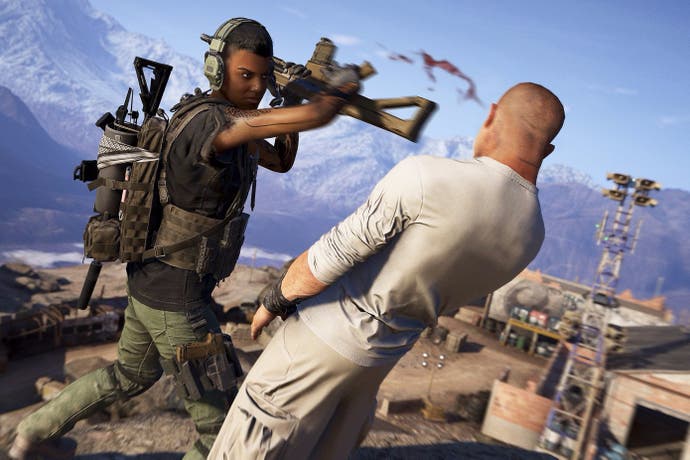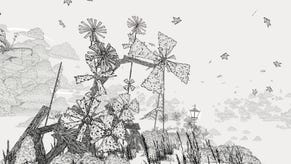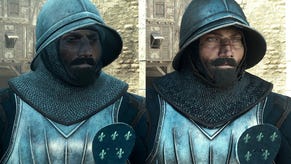Video games and improv are made for each other
Chaotic tourist mode.
I started acting when I was fifteen. It was the freedom that attracted me; years of shyness and frustration shunted cleanly out of the way with scripts and imaginary characters to hide behind. A few decades of training, performing, directing, then teaching eventually lead to two years of standing on movie sets on the other side of the world. I came to understand that the key to growing as an actor was being flexible and open; in dramatic terms, being able to improvise.
Improvisation is a terrifying word to most acting students. They can't really be blamed; it's perceived by many as being instantly funny in front of other people, a skill I certainly don't have. However, to improvise is to actively leap away from the safety net of a script, throwing yourself down a creative mountain and hoping the skis hold. The trick, like all acting, is to give the illusion of freedom. Far from being the unrestricted playhouse that exists in many school drama classes, improvisation is actually a series of constructs inside which the actor can poke around and explore. To the audience, it looks like pure freedom of creative expression. The actor, in control, enjoys this sham. It can make them look very good.
In fact, there's a constant set of rules that the actor must follow to make the growing scene work: audience sightlines; listening to the words around you; watching body language to spot clues and cues. And always, a million moments, scripts and Boolean trees of dramatic possibilities bounce around inside the head, ready to slot into the characters and situations unfolding around them.
It's this controlled chaos that has jumped over from theatre and started to define my opinion of a game's quality. Sometimes there's magic hiding in the least likely of places.
Ghost Recon Wildlands is an hilariously clunky adventure that wouldn't seem out of place as a Team America sequel. (Once again, there's not many problems that can't be solved with an endless supply of American bullets.) The writing is gloriously tone-deaf, with gruff marines growling obscenities when the locals dare to fight back. One typical mission involves infiltrating a luxury poolside residence in order to forcefully persuade a local militia boss to rethink his life choices. So far, so Ubisoft. However, in the middle of an ensuing firefight - my kind of stealth - the enemy boss jumped into a souped-up sports car, and fled. Suddenly, everything changed; all the targets lighting up the screen with bullet tracers were completely superfluous, and it became all about chasing the boss in the car.
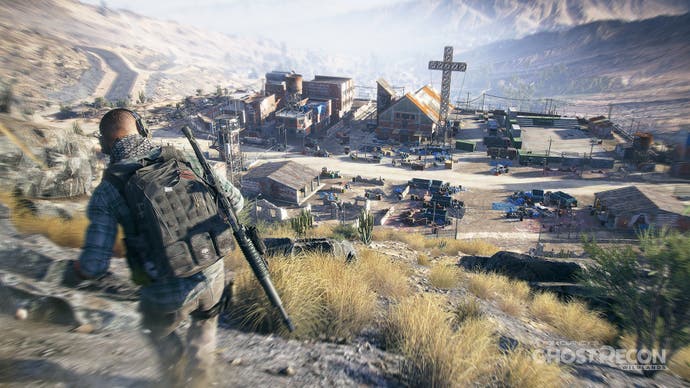
Here's where the improvisation began. As it wasn't a tidy cutscene or set-piece, there was no pursuit vehicle conveniently waiting at the cusp of the road. Instead, I needed to grab whatever was at hand, be it a helicopter, scooter, or sensible hatchback. There's a certain hilarity in chasing a cartel lord in the equivalent of a 1990 Nissan Pulsar.
Somehow, through an ingenious mountainside shortcut, I rammed him off the road. This wasn't the end of it, though; his friends skidded up and we engaged in a proper action film shootout from behind cars. My squad mates charged the enemies and I made a grab for the enemy leader, forcing out a vital piece of information as the car behind him exploded.
Once the dust settled, leaving me standing in the wreckage of burnt-out cars and bullet casings, I realised that this awesome string of events had not been conceived in the mind of an underpaid writer, but was actually a direct result of the game systems giving me the freedom to improvise. In a way, it's almost ruined the rest of Wildlands; instead of fixing the country's problems, I just keep stirring up wasp nests to try and make someone run.
Of course, the acting illusion is in full force here. The designers of Wildlands actively put in place a series of branching conditionals that would enable me to leap outside the box, and this must be equally complicated to put into action. The effect, though, is a wonderful sense of playfulness that can make returning to a title more fun each time, from being able to shoot Hitman Blood Money's final boss mid-monologue, to carefully driving a limousine to an objective point in Just Cause 2 by literally rolling it sideways down a hill.
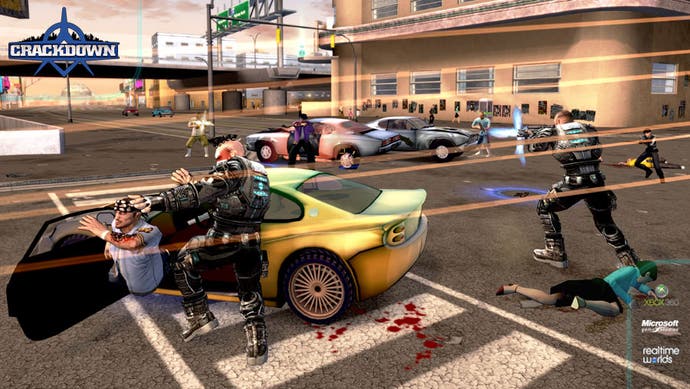
Viola Spolin talks about this in "Improvisation for the Theatre", a comprehensive guide for actors that may as well also be a philosophy of game design. "Skills", she writes, "are developed at the very moment a person is having all the fun and excitement playing a game has to offer...Ingenuity and inventiveness appear to meet any crises the game presents, for it is understood during playing that a player is free to reach the game's objective in any style he chooses."
Well, the style I choose is chaotic tourist mode. In fact, in games where the story is a wafer-thin veneer and any deviation from the set course draws back the curtain to reveal the lighting rig, I'm always reminded of what makes bad improvisation. It is essential that the actor must always be rolling with the new shapes and tones growing around him, to listen to his fellow performers and build on their own narratives; to not respond to these changes brings the story to a halt, the energy quickly fizzling into nothingness. The key to successful improvisation is controlled spontaneity, and the equal challenge for game designers is to build layered systems that give the player the same illusion of creative freedom.
"In this spontaneity, personal freedom is released," states Ms. Spolin. "This causes enough excitation for the student to transcend himself - he is freed to go out into the environment, to explore, adventure, and face all dangers he meets unafraid." Meeting dangers unafraid is the very reason I drifted into acting in the first place, and the games that now give me the same feeling are those that I find myself coming back to again and again.
